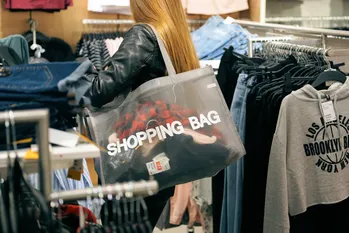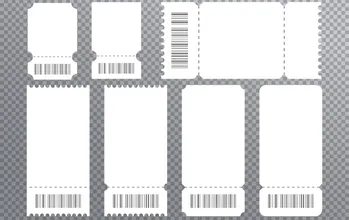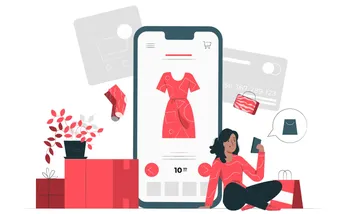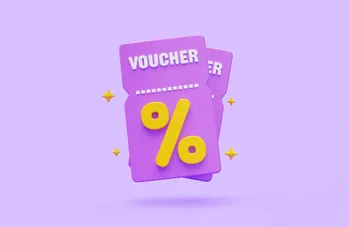Have you ever found yourself overwhelmed by the high cost of groceries, household items, and other essentials? Did you know that couponing can help you save a significant amount of money on these purchases without sacrificing quality or quantity? In this article, we will guide you through the basics of couponing, from signing up for email lists to stacking coupons and maximizing savings.
Couponing is the practice of using discounts, promotions, and vouchers to reduce the cost of products and services. It can be a fun and rewarding hobby that not only saves you money but also helps you discover new brands, flavors, and deals. Whether you're a seasoned shopper or a newcomer to couponing, this guide is for you.
Brief explanation of couponing
Couponing, in its simplest terms, is the act of using discounts, promo codes, and vouchers to reduce the cost of products or services. These coupons can be found in various forms such as printed advertisements in newspapers, digital ads online, or via loyalty programs and rewards schemes offered by retailers. Over time, couponing has become a popular way for consumers to save money on items they need while also finding discounts on luxury items or products they may not have considered before.
Benefits of Couponing
There are numerous benefits to using coupons when shopping. For starters, it's an effective way to reduce expenses and save money on everyday items. By taking advantage of discount offers, shoppers can cut down on their overall costs significantly over time. Additionally, couponing allows consumers to try out new products and brands without breaking the bank as they can test out products at a lower cost.
Challenges of Couponing
While couponing has its advantages, it can also present some challenges. One major obstacle is managing a large collection of coupons efficiently. Whether digital or physical, these vouchers can accumulate quickly and require organization to ensure their expiration dates don't pass before use. Additionally, some consumers may struggle with understanding the terms and conditions of coupons, such as restrictions on product quantity or specific store locations that accept them.
Getting Started
The first step in becoming a successful couponer is to familiarize yourself with the resources available to you. Here are some practical tips to get started:
Sign up for email lists and follow social media accounts of retailers
Many stores and brands offer exclusive deals, promotions, and discounts to their subscribers via email or social media. By signing up for these lists, you can receive alerts about sales, clearance items, loyalty programs, and other perks. You can also engage with the brands on social media by asking questions, sharing feedback, and participating in contests.
Look for weekly circulars and online ads:
Most grocery stores, pharmacies, and superstores publish a weekly circular that showcases their current promotions and discounts. These circulars often include coupons that you can clip or print out before heading to the store. Alternatively, you can check the retailer's website for online ads that feature digital coupons or promo codes that you can redeem on your next purchase.
Utilize smartphone apps:
Smartphone apps such as Flipp, Coupons.com, and Ibotta allow you to scan and redeem digital coupons directly from your device. These apps also provide barcode scanners, price comparison tools, and shopping lists that can help you save time and money at the store. You can download these apps for free on the App Store or Google Play.
Make a list of items you need:
Before hitting the store, make a list of the products you need based on your weekly meal plan, household inventory, and personal preferences. Stick to the list as much as possible to avoid impulse buys and overspending. You can also use the list to match with available coupons and sales, which will maximize your savings.
Maximizing Savings
Once you have a solid foundation in getting started, it's time to take your couponing game to the next level:
Stack coupons
Stacking involves combining multiple discounts or promotions on a single item. For example, you can use a manufacturer's coupon, a store coupon, and a loyalty program discount to bring down the price of a product dramatically. You can also stack digital and paper coupons as long as they are not exclusive offers that cannot be combined.
Look for BOGO deals
Buy One Get One (BOGO) offers allow you to purchase one item at full price and receive another item for free or at a discounted price. These deals can be found in weekly circulars, digital ads, or loyalty programs. You can also stack BOGO deals with manufacturer's coupons or sales to save more money.
Use cashback apps
Cashback apps such as Rakuten (formerly Ebates), Ibotta, and Checkout 51 allow you to earn cashback on your purchases by clicking a link or scanning a barcode before shopping. These apps also offer bonus offers, rebates, and rewards that can add up over time. You can also use them in combination with coupons and sales to maximize your savings.
Shop at discount stores
Discount stores such as Dollar General, Aldi, and Walmart offer lower prices on a variety of products, including food, household items, and personal care products. These stores often have their own loyalty programs, digital ads, and coupons that you can stack with manufacturer's coupons or BOGO deals. You can also find exclusive brands, clearance items, and seasonal sales at discount stores that are not available elsewhere.
Managing Coupons
As your couponing skills improve, you may accumulate a large number of coupons and promotions that require careful management:
Organize your coupons
You can use binders, folders, or envelopes to sort your coupons by category, expiration date, or store. You can also use apps such as ClipShot or Coupon Mom to scan and organize digital coupons. By keeping your coupons in order, you can avoid confusion, duplication, and waste.
Check for exclusions
Some coupons may have exclusions that limit their usage or reduce their value. These exclusions could be brand-specific, product-specific, size-specific, or quantity-specific. You should read the fine print carefully to ensure that you are getting the full benefit of your coupons.
Monitor expiration dates
Coupons have different expiration dates based on the issuer and the store. Some coupons may expire after a few weeks, while others may last for several months or even years. You should check the expiration dates regularly to avoid missing out on any deals.
Plan your shopping trips
Based on your inventory, coupons, and sales, you should plan your shopping trips to maximize your savings. You can use apps such as Flipp or Krazy Coupon Lady to compare prices, find deals, and make a list. By planning ahead, you can avoid overspending, impulse buying, and last-minute rush.
Sharing Coupons
As a responsible couponer, you may want to share your coupons with others who could benefit from them:
Donate unused coupons
Instead of throwing away unused or expired coupons, you can donate them to food banks, shelters, or schools in your area. You can also participate in couponing events or drives that collect and distribute coupons to those in need. By sharing your coupons, you can help others save money and reduce waste.
Trade coupons
You can trade coupons with other couponers who have different needs and preferences than yours. This could be done online, at couponing events, or through social media groups. By trading coupons, you can expand your selection, avoid duplication, and save more money.
Share deals
You can share deals that you find with others by word-of-mouth, email, or social media. This could be done at work, in church, or in your neighborhood. By sharing deals, you can help others save time, money, and hassle.
Collaborate with stores
You can collaborate with stores to improve their couponing policies and practices. For example, you can suggest that they offer digital ads, stackable coupons, or loyalty programs. By working with stores, you can help them attract and retain customers, reduce costs, and increase profits.
Staying Safe
As you progress in your couponing adventures, you may encounter some challenges that require caution:
Protect your personal information
When participating in cashback apps or loyalty programs, you should protect your personal information by using strong passwords, avoiding public Wi-Fi networks, and checking the privacy policies. By protecting your personal information, you can avoid identity theft, fraud, and scams.
Avoid couponing scams
Some websites, emails, or texts may offer too-good-to-be-true deals that are actually scams. These could ask for your credit card number, bank account details, or social security number. By avoiding couponing scams, you can prevent financial loss and legal consequences.
Be aware of expiration dates
Some stores may intentionally set low expiration dates on their coupons to encourage shoppers to buy more items. This could lead to overstocking, spoilage, and waste. By being aware of expiration dates, you can prevent unnecessary spending and environmental impact.
Follow the rules
When using coupons in stores or online, you should follow the rules and policies set by the retailer. This could include limits on quantities, restrictions on brands, and exclusions on items. By following the rules, you can avoid misunderstandings, disputes, and penalties.
FAQ Section
Q: What is couponing and why should I try it?
A: Couponing refers to the practice of collecting and using discount coupons to save money on grocery, household, and personal care items. It can be a fun, frugal, and flexible hobby that can help you reduce your expenses, find deals, and minimize waste. Whether you're on a tight budget or just want to treat yourself occasionally, couponing can be a great way to stretch your dollar further and enjoy more for less.
Q:How do I get started with couponing?
A: Here are some tips to help you get started:
Set a budget and stick to it. Decide how much money you want to spend on groceries, household items, and personal care products each week or month, and make sure your coupons and discounts fit within that budget.
Find sources of coupons. You can get coupons from newspapers, magazines, in-store flyers, online websites, social media, apps, and more. Make a habit of checking multiple sources regularly to increase your chances of finding deals.
Organize your coupons. Use a binder, envelope, or folder to sort your coupons by category (grocery, household, personal care) and expiration date. This will make it easier for you to find the coupons you need when you're shopping.
Match your coupons with sales. Look for items that are on sale at your preferred grocery store or pharmacy, then match them up with your coupons to maximize your savings.
Use loyalty programs and rewards. Many retailers offer loyalty programs and rewards points that you can earn by using their branded products and scanning their barcodes. These programs can help you save money over time and get exclusive offers.
Be aware of expiration dates and limitations. Make sure to check the expiration date of each coupon and any restrictions or limitations (such as quantity limits or exclusions) before using it in the store. This will help you avoid misunderstandings, disputes, and penalties.
Share with others. If you have extra coupons that you're not going to use, consider sharing them with friends, family, or neighbors who might benefit from them. This can help you build relationships and save money for everyone involved.
Stay safe and responsible. Always follow the rules and policies set by the retailer, and avoid any scams or suspicious offers. Remember that couponing is a hobby, not a job, and should be enjoyable and stress-free for you.
Conclusion
Couponing is a fun, frugal, and flexible hobby that can help you save money, find deals, and reduce waste. By following these tips, you can get started, stay organized, share with others, and stay safe. Remember to always be responsible, resourceful, and resilient in your couponing adventures!








